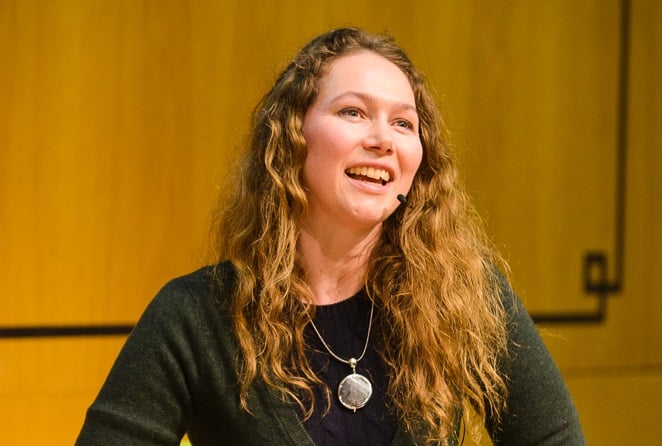
If I were 22: Sara Houston
Pop your artform bubble and stay in touch with your peers: dance academic Dr Sara Houston gives advice to her younger self.
#IfIwere22: I’d stay in contact with people who know your skills and strengths #APNewPro @artspro https://t.co/pmnoYYFf1c
— Sara Houston (@SaraPMHouston) February 9, 2016
It’s useful to keep in touch with experienced people who know your skills and your strengths. At 22, when I started my MA, both part-time and penniless, I bumped into an old lecturer who knew I would be good teaching and who pointed me in the direction of a part-time post as dance teacher in an FE college. Not only did this mean I was working in the field I was studying and wanted to work in, it was also a brilliantly challenging introduction to teaching. I earned my stripes in that job. The same lecturer also nudged me into applying for a PhD studentship a few years later, realising that research was where many of my skills and talents lay. People who know you, and who have access to information you don’t usually have at 22, can often recognise your strengths before you can.
#IfIwere22: I’d keep in touch with talented peers and their networks #APNewPro @ArtsPro https://t.co/pmnoYYFf1c
— Sara Houston (@SaraPMHouston) February 9, 2016
After I graduated I worked as a movement coach/choreographer, mainly for actors and singers. I met many talented people: directors, conductors, composers, actors, singers, dancers, producers. These people were at the beginning of their careers then, but several are now hot property in the entertainment and arts industries. I chose the path of academia, but to my 22-year-old self interested in direction, choreography and movement, I’d say: keep in touch with these talented colleagues and get to know people in their networks. A lot of jobs in the arts come from networking, as well as from working across a variety of entertainment and art contexts.
#IfIwere22 I’d keep learning and keep listening #APNewPro @artspro https://t.co/pmnoYYFf1c
— Sara Houston (@SaraPMHouston) February 9, 2016
Keep learning; keep listening; study, study, study. You may have now graduated from your course, but there really is an awful lot still to learn, whichever area of the arts you want to focus on. I’m still learning now. I love the confidence that many young people exude, but my advice would be to have the confidence to know that there are many things you won’t know and that, crucially, you are, and need to be, a life-long learner. So, go to as many workshops and master classes as you can afford, preferably all over Europe for different perspectives. As a researcher at a university, much of my time is actually devoted to teaching and I now value the time I spent early on studying how others teach and being reflective about that.
#IfIwere22 I’d muck in and get involved with making things happen #APNewPro @artspro https://t.co/pmnoYYFf1c
— Sara Houston (@SaraPMHouston) February 9, 2016
I have been involved in committee or board work throughout my career, even in my early 20s. Mucking in taught me about governance, decision-making and how to organise a team or initiative. It gave me a great insight into ways in which parts of the dance sector ran. In addition, it gave me a feeling that my ideas mattered and that I could have a say in what went on in dance. As a consequence I’ve always felt empowered in my work. I’d recommend to my 22-year-old self to join in and volunteer for committee work. It will allow you to expand that network again too.
#IfIwere22 I’d pop my dance bubble and get interested in other arts #APNewPro @artspro https://t.co/pmnoYYFf1c
— Sara Houston (@SaraPMHouston) February 9, 2016
Don’t live in an artform bubble, which is all too easy to do. Get out to other arts events, exhibitions, conferences. Find a hobby that isn’t in the area you trained in. The more you know about other artforms and find interest in other areas of life, the richer your engagement with the arts will be. Sometimes it is essential. For example, as a dance researcher, I’ve had to become an expert in Parkinson’s and health care systems, prison life and social deprivation, among other topics. If you work in community dance, you will be working with people from all walks of life, with a variety of issues, challenges and interests with which you will need to become fluent, if you are to engage well with them. The dance industry can feel rather insular at times, but some of your best contacts, models of working and allies may be within other arts sectors.
Sara Houston is Principal Lecturer and National Teaching Fellow at the Department of Dance, University of Roehampton, London.
www.roehampton.ac.uk/staff/Sara-Houston
www.roehamptondance.com/parkinsons
Join the Discussion
You must be logged in to post a comment.